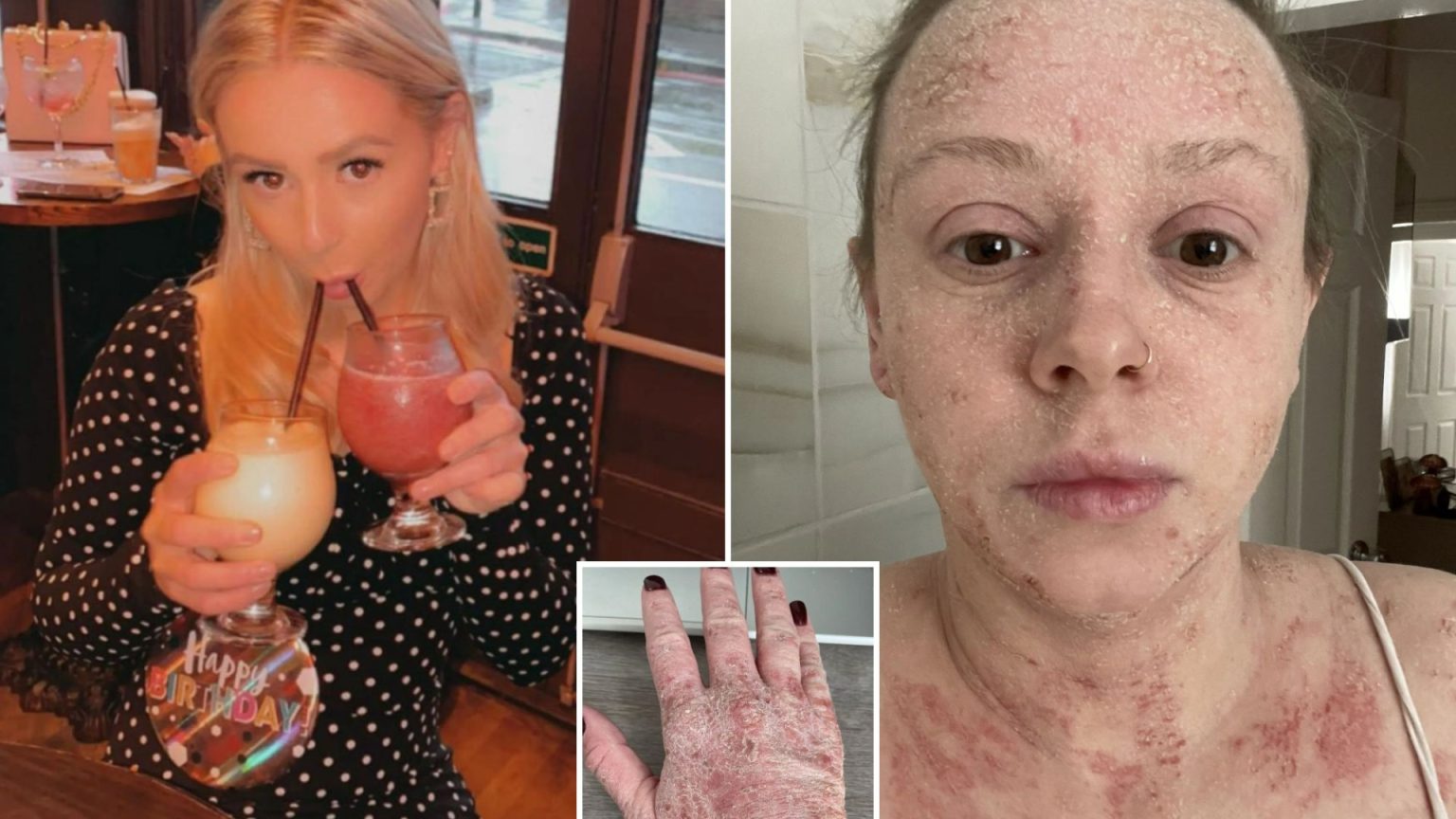Rebecca Ebbage, a 31-year-old account manager, once enjoyed a vibrant social life, unburdened by health concerns. She considered her eczema manageable, easily controlled by the topical steroid cream she had used since infancy. This perception shattered in 2022 when, after a brief lapse in using the cream, her eczema returned with unprecedented ferocity. The familiar itch intensified into a burning sensation, her skin erupted in weeping sores, and her life took an unexpected, devastating turn. What Rebecca initially dismissed as a worsening of her eczema was, in fact, the onset of Topical Steroid Withdrawal (TSW), a debilitating condition triggered by the cessation of long-term topical steroid use.
Rebecca’s once-normal life became dominated by her skin’s relentless demands. Daily activities became ordeals. Showering was agony, water feeling like acid on her raw skin. Simple pleasures like a glass of wine could trigger intense itching, highlighting her newfound sensitivity to irritants. The constant shedding of skin required daily vacuuming of her bed and floor, a grim testament to the severity of her condition. Her physical transformation was equally distressing. She lost all body hair, including significant portions of her scalp hair, while her lymph nodes swelled to the size of golf balls. A particularly distressing symptom was the persistent oozing of a crusty, yellow fluid from her nipples. The cumulative effect of these physical changes left Rebecca feeling like a “monster,” a stark contrast to the carefree young woman she once was.
The social repercussions of TSW were profound. Rebecca’s once-active social life dwindled to near isolation. She became housebound, avoiding public spaces where stares and whispers made her feel like a spectacle. Simple errands became fraught with anxiety as strangers recoiled from her visibly affected skin. Instances of blatant discrimination, such as people snatching money from her hand as if she were contagious, further compounded her emotional distress. The constant need to explain her condition to inquisitive or judgmental strangers became exhausting, leaving her feeling misunderstood and isolated.
The impact on Rebecca’s intimate relationship was equally devastating. Date nights, holidays, and intimate moments became casualties of her condition. The self-consciousness and discomfort caused by her physical changes eroded her confidence and intimacy with her partner, adding another layer of pain to her already challenging situation. While her partner remained supportive, the unavoidable strain on their relationship was a constant source of sadness and frustration for Rebecca. She yearned for the normalcy of their past, a time when their relationship wasn’t overshadowed by the constant presence of TSW.
Rebecca’s journey to understanding her condition began with a TikTok video. Seeing someone else experiencing similar symptoms was a pivotal moment, providing a name and explanation for her suffering. This discovery led her to research TSW, learning about the complex and often misunderstood adverse reaction to the cessation of topical steroid use. The realization that her condition was not unique, and that others were enduring similar struggles, offered a glimmer of hope amidst the despair. It also spurred her to seek alternative treatments, recognizing that conventional medical approaches had thus far failed to provide relief.
Driven by the desire to reclaim her life, Rebecca is now actively fundraising for Cold Atmospheric Plasma therapy (CAP), a promising treatment for skin conditions like TSW. She hopes this therapy will offer a path to healing and allow her to regain some semblance of her former life. Rebecca’s story highlights the hidden cost of long-term topical steroid use and the urgent need for greater awareness of TSW. Her courage in sharing her experience sheds light on a condition that often goes unrecognized and misunderstood, offering hope and support to others battling the debilitating effects of topical steroid withdrawal. Her fundraising efforts represent a powerful testament to her resilience and determination to overcome this challenging condition and reclaim her life.











